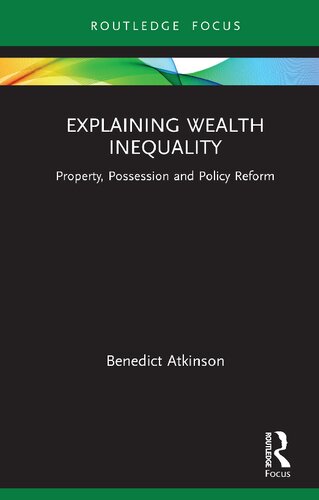

Most ebook files are in PDF format, so you can easily read them using various software such as Foxit Reader or directly on the Google Chrome browser.
Some ebook files are released by publishers in other formats such as .awz, .mobi, .epub, .fb2, etc. You may need to install specific software to read these formats on mobile/PC, such as Calibre.
Please read the tutorial at this link: https://ebookbell.com/faq
We offer FREE conversion to the popular formats you request; however, this may take some time. Therefore, right after payment, please email us, and we will try to provide the service as quickly as possible.
For some exceptional file formats or broken links (if any), please refrain from opening any disputes. Instead, email us first, and we will try to assist within a maximum of 6 hours.
EbookBell Team

4.1
90 reviewsThis book discusses the origins of wealth inequality and explains how societies can reform to avoid the catastrophe of inequality-induced social breakdown. It develops a theoretical and practical understanding of the principles behind the concept of ownership and property, complete with historical examples.
It proposes a new research perspective focusing on how the problem of wealth concentration is ameliorated by cooperative and collaborative initiatives to enhance the public sphere, without derogating from the private. The book is based on research data compiled from taxation and household data to explore the theme that wealth inequality is made inevitable by possessive behaviour expressed in possessive language. It shows that while inequality is inescapable, we can adopt policies where resources are more efficiently and broadly distributed for public benefit. Such policies are directed towards encouraging voluntary, as opposed to compulsory, wealth transfer to achieve public good.
The primary market for the book consists of academics and students from the fields of economics, including growth and developmental economics, law, sociology, history, business and international trade. It also provides a practical resource for government policy analysts wanting to develop a more detailed understanding of the role played by wealth inequality in a range of social problems.